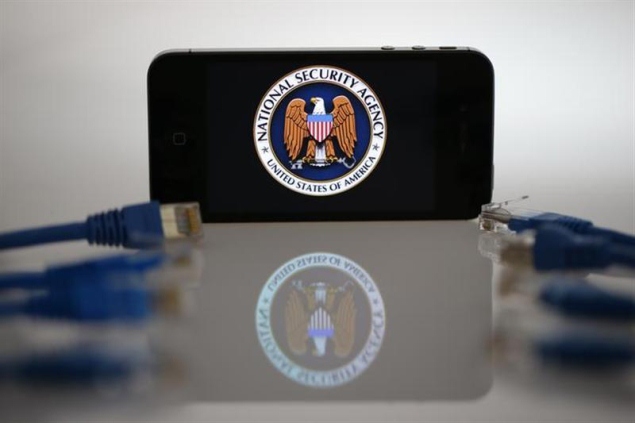
CIA chief John Brennan warned Sunday that allowing vital surveillance programs to lapse could increase terror threats, as the US Senate scrambled to renew the controversial provisions hours before their expiration.
With key counterterrorism programs under threat of suspension at midnight Sunday, the top intelligence official made a final pitch for Senate action, arguing that the bulk data collection of telephone records of millions of Americans unconnected to terrorism has not abused civil liberties and only serves to safeguard citizens.
“This is something that we can’t afford to do right now,” Brennan said of allowing the counterterrorism provisions to expire at midnight Sunday.
“Because if you look at the horrific terrorist attacks and violence being perpetrated around the globe, we need to keep our country safe, and our oceans are not keeping us safe the way they did century ago,” he said on CBS talk show “Face the Nation.”
Brennan added that groups like Islamic State have followed the developments “very carefully” and are “looking for the seams to operate.”
The House has already passed a reform bill, the USA Freedom Act, that would end the telephone data dragnet by the National Security Agency and require a court order for the NSA to access specific records from the data retained by telecommunications companies.
If no action is taken by the Senate Sunday, authorities will be forced to shut down the bulk collection program and two other provisions, which allow roving wiretaps of terror suspects and the tracking of lone-wolf suspects.
A senior administration official said switches would be turned off for the bulk collection servers beginning at 3:59 pm (1959 GMT) Sunday, and any collection after midnight would be deemed illegal, without congressional authorization.
“I do believe we have the votes” to pass the Freedom Act, Republican Senator Mike Lee, who supports ending NSA metadata collection, told CNN’s State of the Union.
“At this point I think the question is not about whether we will get it passed, but when.”
Senator Rand Paul, a Republican 2016 presidential candidate adamantly opposed to reauthorizing the surveillance, is threatening to use his parliamentary prerogative to delay votes on the reform bill or an extension of the original USA Patriot Act.
(Also See:US Senate to Let NSA Spy Program Lapse, at Least for Now)
That could force the counterterrorism provisions to lapse until Wednesday, and possibly later.
Political ‘grandstanding’ over security?
Brennan did not mention Paul by name, but he expressed exasperation over the politicization of important programs which he insisted “have not been abused” by US authorities.
“Unfortunately I think there is a little too much political grandstanding and crusading for ideological causes that have really fuelled the debate on this issue,” he said.
The Senate meanwhile convened at 4:00 pm (2000 GMT) with the fate of the provisions hanging in the balance.
Top Senate Democrat Harry Reid blasted Majority Leader Mitch McConnell for opposing the painstakingly crafted compromise reform legislation that overwhelmingly passed the House, but having no viable plan that would keep crucial provisions from expiring.
“That’s why we’re here, staring down the barrel of yet another unnecessary manufactured crisis that threatens our national security,” Reid said on the Senate floor.
Senator Patrick Leahy, a senior Democrat who co-authored the Freedom Act, piled on, saying the Senate was facing a crises of McConnell’s making.
“We should pass it tonight,” Leahy said of the reform bill. “But don’t duck behind not doing anything and pretend that’s a solution.”
McConnell stood at odds with House Speaker John Boehner, who warned how Al-Qaeda and IS could benefit if counterterror tools lapsed and urged the Senate to pass the Freedom Act.
“Anyone who is satisfied with letting this critical intelligence capability go dark isn’t taking the terrorist threat seriously,” Boehner said Sunday.
Independent Senator Angus King said it was important to halt the government storage of metadata, leaving it instead with telecommunications companies.
But he said the Freedom Act should be improved so that it compels companies to hold data for a long period of time.
“There should be some reasonable requirement for holding the data if, indeed, you think the program has value, and I do,” King told CNN
[“Source-gadgets.ndtv.com”]







